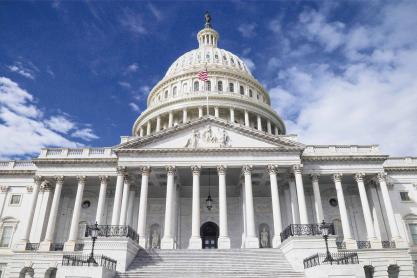UVA Today has their favourites
Looking for a movie to watch on a chilly winter night? University of Virginia School of Law faculty members recently shared their favorite films on lawyering, with picks drawn from history, literature and current events.
So make a bowl of popcorn, grab your cuddliest throw blanket, snuggle up and click “play.”
Rachel Bayefsky, Associate Professor of Law
Bayefsky writes about constitutional law, federal courts, civil procedure and legal theory.
“I would recommend ‘Woman in Gold,’ starring Helen Mirren. The movie tells the story of an elderly Jewish woman who seeks to recover a well-known painting stolen from her family by the Nazis, with the trusty aid of the Foreign Sovereign Immunities Act.”
George Cohen, Brokaw Professor of Corporate Law
Cohen teaches contracts, professional responsibility, and agency and partnership. He has also taught antitrust and law and economics.
“The movie I would recommend is ‘The Firm,’ by one of Charlottesville’s famous residents, John Grisham. It’s got great acting, a compelling story and lots of ethical issues.”
School of Law Dean Risa Goluboff
Goluboff, the 12th dean of the Law School, is a legal historian whose scholarship and teaching focuses on American constitutional and civil rights law.
“I recommend ‘Bridge of Spies,’ which raises important issues about legal ethics. It highlights the duty of the lawyer to represent clients zealously, in this case an unpopular client in a politically contentious time.”
A.E. Dick Howard, Warner-Booker Distinguished Professor of International Law
Howard is widely acknowledged as an expert in the fields of constitutional law, comparative constitutionalism and the U.S. Supreme Court.
“Whatever one’s choice of recent films (for example, adaptations of John Grisham), lawyers, especially younger ones, should be sure that they have seen some of the iconic films from earlier years. Examples of essential viewing would include:
“‘To Kill a Mockingbird’: Today, there is sharp debate about whether the book on which this movie is based indulges in time-bound stereotypes, but the film remains a classic picture of courage in the face of community attitudes. Gregory Peck earned his Academy Award for his portrayal of Atticus Finch.
“‘12 Angry Men’: A vivid picture of what goes on in the jury room. When I keynoted a conference in Munich on German and American legal culture, the German professor who organized the event said he shows this movie to his students for them to get a sense of law in America.
“‘Judgment at Nuremberg’: This stirring film reminds us of the place law plays – or should play – on the international stage. Director Stanley Kramer brought strong moral judgments about social issues to a number of films (‘Inherit the Wind,’ ‘On the Beach,’ ‘Guess Who’s Coming to Dinner’). This film, about the 1948 war crimes trials, remains intensely relevant in an age when we follow the news from unhappy places like Ukraine and the Middle East.
“Other films could be cited. But you get the point. Watch the classics, then move on to contemporary fare.”
David S. Law, E. James Kelly Jr. Class of 1965 Research Professor of Law
Law is an internationally recognized expert in the comparative study of public law and courts. He is the author of the 2022 textbook “Constitutionalism in Context.”
“I recommend ‘Three Colors: Red,’ the last film in Krzysztof Kieslowski’s ‘Three Colors’ trilogy. Each film in the trilogy has as its theme as one of the three core political ideals of the French Republic: liberty, equality, fraternity. ‘Red’ is on fraternity. This capstone trilogy by the Polish master is a high point in francophone cinema and ranks among the best films ever made, with ‘Red’ arguably the best of the bunch and Kieslowski’s best work. He died shortly after its release.
“It should be of particular interest to law students because it exposes viewers incidentally to the very different structure of legal education and the judiciary in civil law countries such as France. Lead characters include a retired judge and a young man fresh out of judge school – yes, ‘judge school.’”






